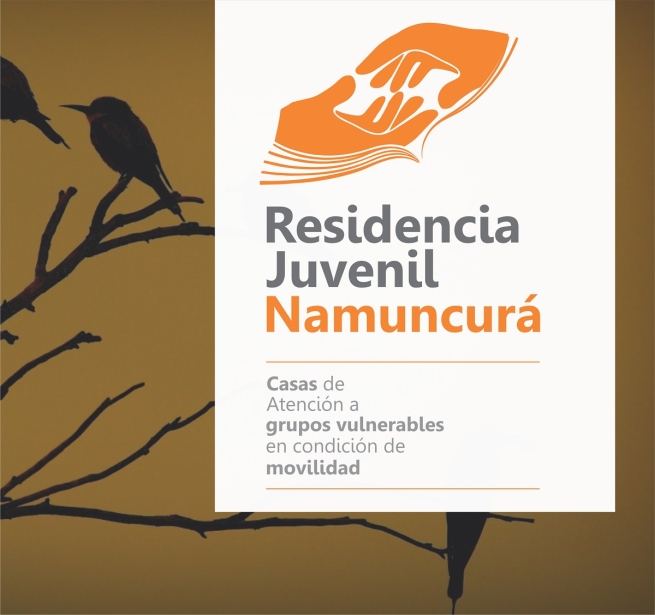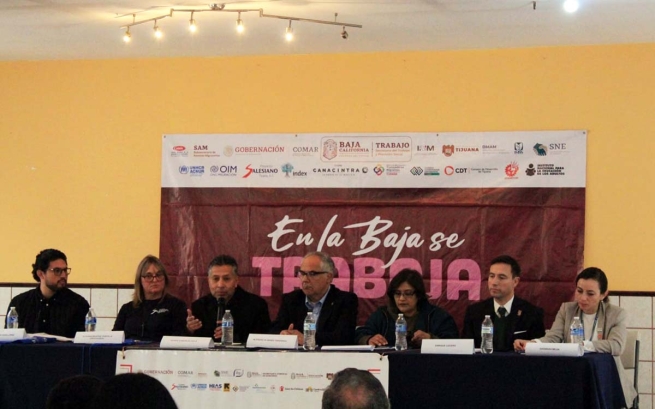MEXICO: Salesian Missionaries Assist Haitian Migrants and Mexicans Deported from the United States
Between May 2016 and January 2017, Salesian missionaries faced a wave of Haitian migrants at its Salesian center, Desayunador Salesiano, in Tijuana. Haitian migrants arrived dizzy, exhausted, cold, hungry, and broke after their three-month land journey from Brazil. Some were sick. Some had delivered babies or miscarried along their route. Others had family and friends die during the journey. Migrants also faced crime and exploitation as they traveled through Central America.
At the peak of the migration in December 2016, there were 480 Haitians – men, women, and children – living at the Salesian shelter, which was only designed for 80 guests. They slept on the floor or they slept outside. With President Trump’s January 20 inauguration, the Haitian wave of migrants stopped as abruptly as it had begun. The deportation rate in the United States had soared to more than 70 percent of those who attended their scheduled U.S. immigration hearing.
With very little in Haiti to go back to and the oppressive stigma borne by those have been deported, the Haitians who remain in Tijuana have opted to apply for Mexican residency. Many of them have found jobs, settling for $10 a day for 10 hours’ work. Many others faced racial discrimination and can’t find work. Those who can, have rented one-room apartments in the only neighborhood they can afford, the Zona Norte, right along the U.S.-Mexican border. This area is known as drug cartel territory and has high rates of human trafficking.
The Salesian Center is currently housing 70 Haitian migrants in addition to the 5,000 who came to the programs over the last year to receive services, shelter and assistance. Salesian missionaries are helping with online residency papers and obtaining Haitian passports. Three young Haitian men have joined the staff of the Desayunador Salesiano and are working to aid the continued effort of assistance for these Haitian families.
“We dressed and fed them as we could and arranged their medical care,” says Father Mike Pace, a Salesian priest in Tijuana. “We listened to their stories, consoled and encouraged them, and helped them navigate the Mexican immigration bureaucracy. We provided translation services and celebrated mass in Creole, French, and Spanish, while offering moments of relaxation and celebration.”
The Salesian Center is also working with Mexicans who have been deported from the U.S. and have nowhere else to go. Angel was in Los Angeles for 14 years, working and raising his family. He was asleep with his wife at midnight when the police knocked at his apartment door. He had enough time to put on his clothes and he was gone. Sergio was seeing his kids off to school before going to his job of 18 years, when the police arrested him outside his house, handcuffed him, and drove him away, leaving his wife, kids, and neighbors in shock. José was on a customer’s roof applying new shingles when he was called down and asked to show his papers. He was then gone with no time to gather any documents, money, say goodbye, or pack luggage.
“Men show up at our shelter with deportation papers in hand, dazed, like deer caught in headlights. I always ask them how the deportation took place. They are relieved to be able to tell someone,” explains Fr. Pace. “They arrive in Tijuana with no one and nothing. They don’t know the city. They have no local contacts, no job, and no place to live. The Salesian Center helps bridge them into their new life lest they fall into a life on the streets.”
In addition to working with migrant populations, Salesian missionaries in Mexico primarily direct their efforts toward the country’s at-risk youth, including girls and young mothers. Creating safe havens and improving educational opportunities are essential to deter youth from life on the streets where they are susceptible to drugs and gang violence.
Sources




